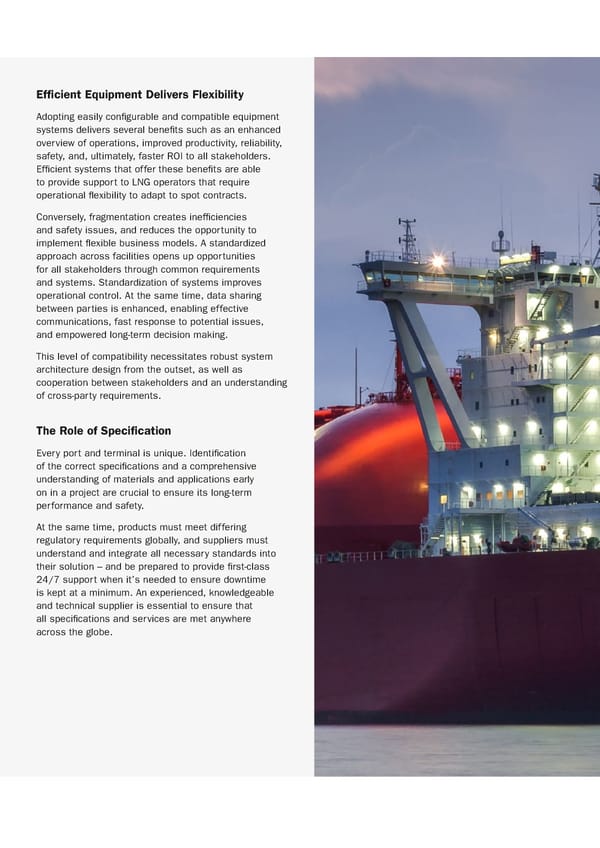Efficient Equipment Delivers Flexibility Adopting easily configurable and compatible equipment systems delivers several benefits such as an enhanced overview of operations, improved productivity, reliability, safety, and, ultimately, faster ROI to all stakeholders. Efficient systems that offer these benefits are able to provide support to LNG operators that require operational flexibility to adapt to spot contracts. Conversely, fragmentation creates inefficiencies and safety issues, and reduces the opportunity to implement flexible business models. A standardized approach across facilities opens up opportunities for all stakeholders through common requirements and systems. Standardization of systems improves operational control. At the same time, data sharing between parties is enhanced, enabling effective communications, fast response to potential issues, and empowered long-term decision making. This level of compatibility necessitates robust system architecture design from the outset, as well as cooperation between stakeholders and an understanding of cross-party requirements. The Role of Specification Every port and terminal is unique. Identification of the correct specifications and a comprehensive understanding of materials and applications early on in a project are crucial to ensure its long-term performance and safety. At the same time, products must meet differing regulatory requirements globally, and suppliers must understand and integrate all necessary standards into their solution – and be prepared to provide first-class 24/7 support when it’s needed to ensure downtime is kept at a minimum. An experienced, knowledgeable and technical supplier is essential to ensure that all specifications and services are met anywhere across the globe.
 TM&I LNG Flexibility Factor Report Page 11 Page 13
TM&I LNG Flexibility Factor Report Page 11 Page 13